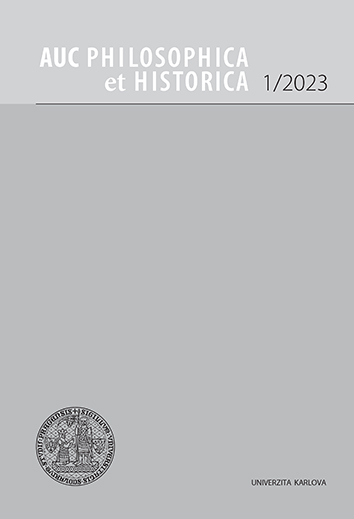AUC Philosophica et Historica je víceoborový akademický časopis zaměřený na humanitní a společenskovědné obory (filozofie, psychologie, pedagogika, sociologie, obecné, české a hospodářské dějiny, pomocné vědy historické a archivnictví, etnologie).
Časopis je indexován v databázích CEEOL, DOAJ a EBSCO.
AUC PHILOSOPHICA ET HISTORICA, Vol 1994 No 2 (1994), 57–70
Paměť jako sociologický problém
[Memory as a Sociological Phenomenon]
Jiří Šubrt
DOI: https://doi.org/10.14712/24647055.2018.75
zveřejněno: 15. 01. 2018
Abstract
The first sociologist to deal with memory in any significant ly way the French sociologist, M. Halbwachs, who was most influened by his teachers H. Bergson and E. Durkheim. Halbwachs talks about the social contingency of memory. In his view, memory is constituted, functions and is reproduced in certain social frames. Halbwachs deals with the collective memory of a family, religious societies, social classes and nations. Interest in Halbwachs’ work was renewed in the 1980’s, and today his ideas especially interest historians. Another sociologist of memory Jan Assmann distinguishes 4 spheres of memory; a) mimetic memory, b) memory of things, c) communicative memory, d) cultural memory. Communicative memory contams recall of the recent past which is located within the ex perience of the last 3–4 generations, and which is the subject of historical research referred to as oral history. In cultural memory, the past is changed into symbolic (Igures and is presented in rituals of a festive character. Cultural memory reaches the mythical beginnings. While the presence of a group in the communicative memory is diffuse, cultural memory has specific bearers, and is highly formalised and symbolicly coded, perhaps articulated or ex pressed literary or throughout dramatic forms. Halbwachs conception of collective memory is supported also by Pierre Nora for whom the significant fact is not its being communicated but that it is manifested in a certain space – that of memory. The primary subject of Nora’s interest is the study of memory space (in a topographic and symbolic sense), while collective memory is „crystalized“. The issue of individual memory is sociologically significant. as evidenced by biographic approaches to history, social issues. Theoretically significant is the issue of personál identity, with which P. Berger and Th. Luckmann deal. Luckmann considers personal identity as connected to a body and, intersubjectivelly constituted. It is asocially determined structure which is essentially based on time. This structure is asynlhesis of: a) inner time (connected with the body and analogous to Bergson’s duree), b) intersubjective time (structured by socially objectivized categories contained in social knowledge), in the framework of which synchronisation of social interaction takes place: and c) biographic time, which is connected with the construction and reconstruction of the course of life. Empirical sociological research of social memory is so far not extensive but certain projects have been completed (e. g. by the Institute of Sociology at the University of Vienna).
